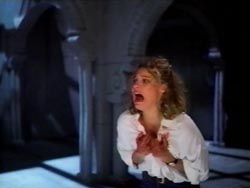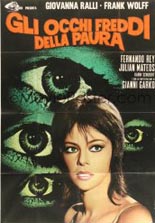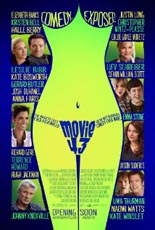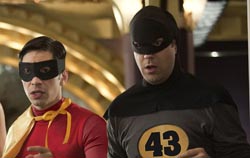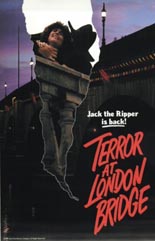
 In 1888 England, Jack the Ripper (Paul Rossilli, Star Trek VI: The Undiscovered Country) pursues his hobby of whore-slaughtering, all while being pursued by the authorities. The police trap him on London Bridge, and Jack takes a presumably fatal plunge into the Thames.
In 1888 England, Jack the Ripper (Paul Rossilli, Star Trek VI: The Undiscovered Country) pursues his hobby of whore-slaughtering, all while being pursued by the authorities. The police trap him on London Bridge, and Jack takes a presumably fatal plunge into the Thames.
In 1985 Lake Havasu, Ariz., of all places, said bridge has been relocated and rebuilt stone by stone, because hey, why not? Only one stone remains to be slipped into place, which is being saved for the dedication ceremony. A frizzy-haired tourist’s accidental drop of blood on said stone resurrects the Ripper, because hey, why not?
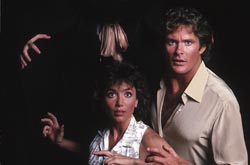 The answer is Terror at London Bridge, a made-for-NBC movie as notable for having a screenplay by Logan’s Run author William F. Nolan as for whom it stars: David Hasselhoff. Then nearing the end of his Knight Rider run for the net, the Hoff plays Don Gregory, a misfit cop from Chicago who disagrees with the theory that the town’s sudden string of murders is the work of “a road bum.”
The answer is Terror at London Bridge, a made-for-NBC movie as notable for having a screenplay by Logan’s Run author William F. Nolan as for whom it stars: David Hasselhoff. Then nearing the end of his Knight Rider run for the net, the Hoff plays Don Gregory, a misfit cop from Chicago who disagrees with the theory that the town’s sudden string of murders is the work of “a road bum.”
Plucked from the peacock’s then-hit Hunter, Stepfanie Kramer gets the thankless role of Gregory’s love interest / Ripper’s target / distracting eye makeup-wearer. Adrienne Barbeau (Swamp Thing) has even less to do, other than being an unknowing participant in the viewers’ game of determining whether she, Kramer or Hasselhoff possesses the pouffiest hairdo.
Directed by prolific telepic vet E.W. Swackhamer (Death at Love House, Cocaine and Blue Eyes, The Oklahoma City Dolls, et al.), this Bridge is worth crossing for cheese’s sake, because hey, why not? As if you needed to be told, the prime-time filler has a funny idea for what qualifies as “terror,” which is exactly the reason it entertains, in a way its makers did not intend. —Rod Lott

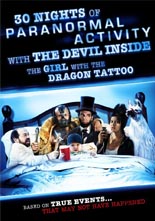
 More thought went into titling this movie than went into scripting it. I picture the latter happening this way: Writer/director Craig Moss (whose previous turd, aptly titled
More thought went into titling this movie than went into scripting it. I picture the latter happening this way: Writer/director Craig Moss (whose previous turd, aptly titled 
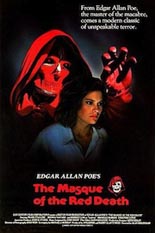
 Twice in 1989 was Edgar Allan Poe’s “The Masque of the Red Death” brought back to the big screen. One was from Roger Corman, whose
Twice in 1989 was Edgar Allan Poe’s “The Masque of the Red Death” brought back to the big screen. One was from Roger Corman, whose 